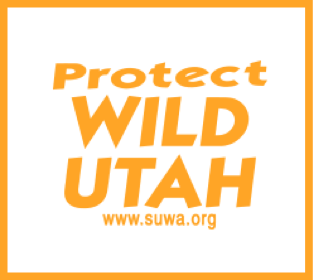|
Salt Lake City, UT—Reflecting the position that oil and gas development is its "Number One priority," the Bureau of Land Management has released an environmental assessment for a highly controversial seismic exploration project that would cover over 1.9 million acres of public lands in northeastern Utah. Like the BLM’s so-called "Yellow Cat" seismic project outside of Arches National Park that was successfully appealed by a coalition of conservation groups in February 2002, this proposal would run roughshod over fragile cryptobiotic soils, disturb important big game habitat, and put proposed wilderne ss lands at risk. "Time and time again Utah BLM has shown a blatant disregard for federal environmental laws that require a thorough and up-front analysis of the impacts of significant projects such this one," said SUWA staff attorney Steve Bloch. "By all indications, this project continues down that same path," Bloch continued. SUWA conservation director Heidi McIntosh acknowledged that there are "lots of places in the Uinta Basin for development," but argued that "proposed wilderness and lands rich in archeological sites should be off limits to oil companies." The so-called Veritas 2-D Seismic Exploration project would authorize over 470 miles of intrusive seismic exploration, much of its by cross-country travel, across 1.9 million acres of the northern Book Cliffs region. Located in some of northeast Utah’s wildest country, this project puts a number of important resources at risk, including:
Currently, the public has until August 12th to comment on this proposal. Yesterday, however, a coalition of conservation groups representing over 1 million members requested that the BLM extend the comment period until October 12th; BLM has not yet responded to this request. |
|
|

 Southern Utah Wilderness Alliance
Southern Utah Wilderness Alliance
Protecting Utah's Redrock Country
